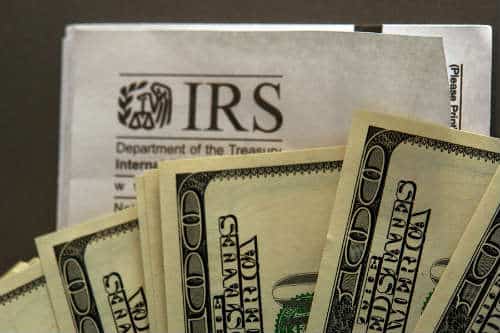Q: I am going through a very acrimonious divorce and paying through the nose. I am a private practice epsychologist.
I usually had no problem paying estimated taxes, but can’t make ends meet anymore. My ex refused to sign the joint return last year which cost me $20k. I’m afraid that every year i’ll get further behind b/c of the inability to pay estimated quarterly taxes.
I can’t even function with the money I have. What should I do?
A: I’m sorry to hear about your bitter divorce and the financial problems you’ve been experiencing. I sympatize with you on both fronts – having been through both ordeals myself. Moreover, I also know from firsthand experience – as an entrepreneur too – how difficult it is to pay those dreaded estimated quarterly taxes.
As you may know, as a self-employed individual you are obligated under the law to pay federal income tax, along with Medicare and Social Security taxes, more commonly called self-employment tax. How much you pay in federal taxes is based on your adjusted gross income. The current rate for self-employment tax is 15.3% on the first $106,800 you earn. Of course, you also have to factor in any required state and local taxes, depending on where you live.
The deadlines for filing and paying your quarterly estimated taxes are: April 15, June 15, September 15 and January 15 (or the next business if those days fall on a Saturday, Sunday or legal holiday).
If you can’t pay your estimated quarterly taxes, don’t make the mistake of not filing at all or ignoring your situation. That will just worsen the problem. A failure to file taxes and pay what you on on time could result in late penalties and interest of 25% or more.
So if you simply don’t have the money, try one of these options:
1) Request an extension of time to pay
Extensions are usually granted for 30 to 120 days. You still get socked with penalties and interest, but they’re usually less than what you pay in an installment plan.
2) Ask for an installment agreement
With an installment agreement, you request a payment plan with the IRS for the most recent tax year. You can get a payment plan for as long as 24 months and not have it impact your credit rating, in terms of the IRS putting a lien against you or reporting you as delinquent to the credit bureaus. If you owe $25,000 or less, just go online to the IRS website and fill out the Online Payment Agreement.
3) Consider a loan to pay your tax bill
A bank loan or home equity loan (if you can get either) will carry a much lower interest rate than paying the IRS off over time under and installment agreement.
4) Ask the IRS about an offer in compromise
The IRS usually only grants these when:
a) a person can show that they have severe economic hardship; or
b) it’s doubtful that the taxpayer could pay what’s owed over the time the IRS has to collect the debt
Start by asking your accountant for which path he/she would recommend, since that individual is likely to be very familiar with your situation. Or, if you don’t use a CPA, call the IRS directly at 800-829-1040.










